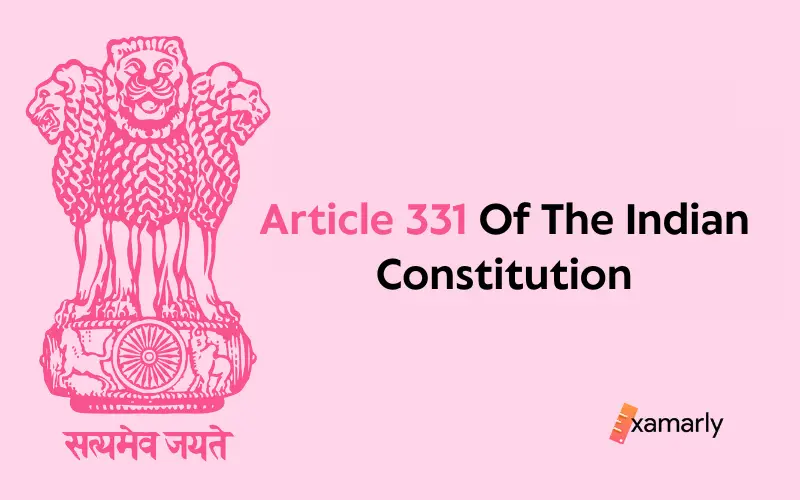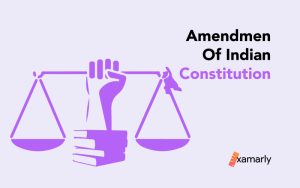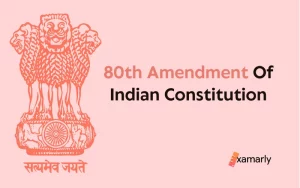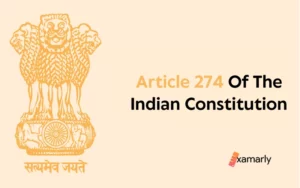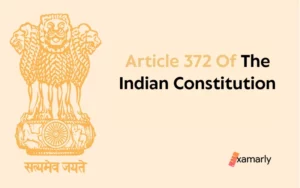Article 331 of the Indian Constitution deals with the representation of the Anglo-Indian community in the Indian House of the People (The Lok Sabha of India).
It gives certain authority to the President of India to regulate upon this provision if he feels the Anglo-Indian community is underrepresented.
Let us dive deep for a thorough understanding of Article 331 of the Indian Constitution.
Article 331 Of The Indian Constitution – Explained
Article 331 of the Indian Constitution states about the representation of the Anglo-Indian Population in the House of the People (The Lok Sabha of India).
The President may appoint a maximum of two members of the Anglo-Indian community to the House of the People;
- Notwithstanding the limitations of Article 81 of the Indian Constitution, and
- If he believes that the community is not sufficiently represented in the Indian legislative.
Article 331 of the Indian Constitution gave way to Anglo-Indian reserved seats during the creation of the Constitution of India.
It also says that this Anglo-Indian reservation would cease to exist 10 years after the commencement of the Constitution in the Union of India.
But the said Anglo-Indian reservation was consecutively extended in the Constitution of India through the 8th, 23rd, 45th, 62nd, 79th and 95th Amendments.
There were fourteen states of India to have a nominated Anglo-Indian member each in their respective State Legislative Assemblies:
| Andhra Pradesh | Bihar | Chhattisgarh | Gujarat | Jharkhand | Karnataka | Kerala |
| Madhya Pradesh | Maharashtra | Telangana | Tamil Nadu | Uttar Pradesh | Uttarakhand | West Bengal |
However, the 104th Constitutional Amendment Act of 2019 eliminated the Anglo-Indian reserved seats in the Parliament of India and the State Legislatures in January 2020.
Summary
Article 331 of the Indian Constitution provides for the reservation of seats in the Indian House of the People (The Lok Sabha of India) for Anglo-Indian Members of India.
It also authorises the President of India to nominate two member at max if he feels that the Anglo-Indian community is underrepresented in the legislature of India.
The provisions under Article 331 of the Indian Constitution were eliminated citing less number of Anglo-Indians in India.
You Might Also Like To Read: Article 332 Of The Indian Constitution.
FAQs Around Article 331 Of The Indian Constitution
What does Article 331 of the Indian Constitution say?
Article 331 of the Indian Constitution provides for the reservation of seats in the Indian House of the People (The Lok Sabha of India) for members of the Anglo-Indian community.
Who are the Anglo-Indians?
The Anglo-Indians are a community of people in India who have mixed European and Indian ancestry.
The community is believed to have originated in the late 18th and early 19th centuries, when the British were ruling India and many British men married or had children with Indian women.
Anglo-Indians have historically been a distinct community with their own culture, traditions, and way of life.
Why was there a need for Article 331 of the Indian Constitution?
Anglo-Indians are a minority community in India & have often faced discrimination and marginalisation in the society due to their mixed heritage.
In the Indian Constitution, they are classified as a “Socially and Educationally Backward Class” and are entitled to certain rights and benefits such as reservations in education and jobs in India.
Being an extremely small community and being scatter all across India, the Anglo-Indian community was provided reservations in legislative bodies.
How are the reserved seats filled for Anglo-Indians?
The reserved seats are filled by Presidential nominations in case he feels the community is underrepresented.
What was the purpose of reserving seats for Anglo-Indians?
The purpose of reserving seats for Anglo-Indians was to help ensure that members of this group are adequately represented in government, and to provide them with a voice in the decision-making process.


